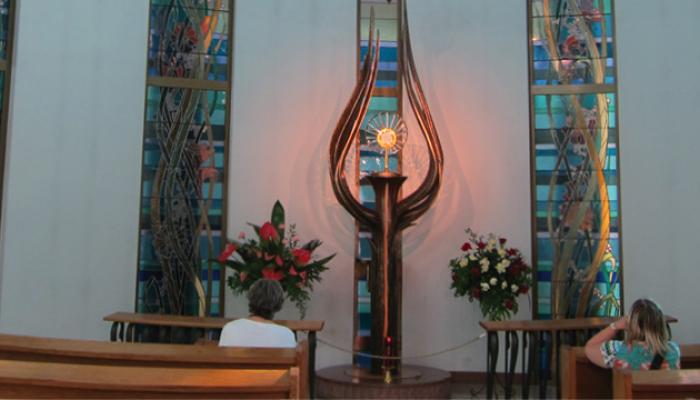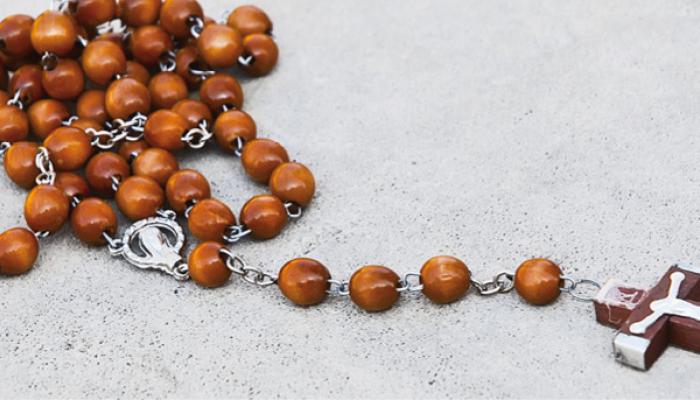
3.13 What is the Liturgy of the Hours?
The Liturgy of the Hours is a set of prayers which are addressed to God during specific times of the day, particularly in monasteries. The Jews already prayed at sunrise and sunset. To these moments of prayer Christians have added other daily prayer times.
The Liturgy of the Hours is a good way to devote every day entirely to God. You can pray the Liturgy of the Hours together with others or alone; after all, God is always there.
What is the Liturgy of the Hours?
The Liturgy of the Hours is the universal, public prayer of the Church. Biblical readings lead the person who prays it ever deeper into the mystery of the life of Jesus Christ. Throughout the world this gives the Triune God the opportunity at every hour of the day to transform gradually those who pray and also the world. The Liturgy of the Hours is prayed not only by priests and religious. Many Christians who take their faith seriously join their voices with the many thousands of praises and petitions that ascend to God from all over the world.
The seven “hours of prayer” are like a treasury of the Church’s prayers. It also loosens our tongues when we have become speechless because of joy, sorrow, or fear. Again and again one is astonished in reciting the Liturgy of the Hours: an entire reading “coincidentally” applies precisely to my situation. God hears us when we call to him. He answers us in these texts—often in a way that is so specific as to be almost disconcerting. In any case he also allows us to have long periods of silence and dryness so that we can demonstrate our fidelity. [Youcat 188]
What times are more suitable for prayer?
Any time is suitable for prayer but the Church proposes to the faithful certain rhythms of praying intended to nourish continual prayer: morning and evening prayer, prayer before and after meals, the Liturgy of the Hours, Sunday Eucharist, the Rosary, and feasts of the liturgical year. [CCCC 567]
When should a person pray?
From the earliest times Christians have prayed at least in the morning, at meals, and in the evening. Someone who does not pray regularly will soon not pray at all.
Anyone who loves another person and all day long never gives that person a sign of his love does not really love him. So it is with God, too. Anyone who truly seeks him will keep sending him signals of his longing for his company and friendship. Get up in the morning and give the day to God, asking for his blessing and to “be there” in all your meetings and needs. Thank him, especially at mealtimes. At the end of the day, place everything into his hands, ask him for forgiveness, and pray for peace for yourself and others. A great day—full of signs of life that reach God. [Youcat 499]
Among the forms of prayer which emphasize Sacred Scripture, the Liturgy of the Hours has an undoubted place. [It is] a privileged form of hearing the word of God, inasmuch as it brings the faithful into contact with Scripture and the living Tradition of the Church... The Liturgy of the Hours, as the public prayer of the Church, sets forth the Christian ideal of the sanctification of the entire day, marked by the rhythm of hearing the word of God and praying the Psalms; in this way every activity can find its point of reference in the praise offered to God. [Pope Benedict XVI, Verbum Domini, n. 62]





